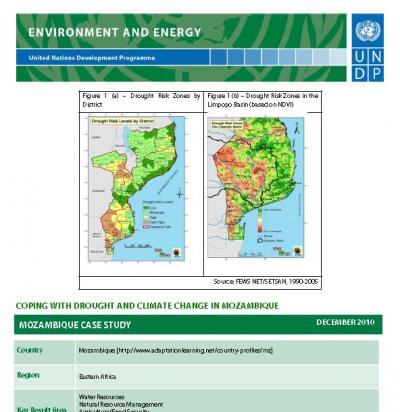UNDP-ALM Case Study: Mozambique - February 2011

Abstract: The Government of Mozambique recognizes that the country is vulnerable to catastrophes and that the hazards resulting from climate change are exacerbating the persistence of absolute poverty in Mozambique. Of all of the natural hazards affecting the country, drought is the most common and the most devastating. In light of this challenge, the United Nations Development Programme (UNDP) and its partners are implementing the Coping with Drought and Climate Change (CwDCC) project in Ethiopia, Kenya, Mozambique and Zimbabwe.
The projects are scheduled to run for five years with the goal of enhancing the capacity of agricultural systems in dryland areas to adapt to climate variability and change. For Mozambique, the implementation of this project will enhance food security and the capacity to adapt to climate change in agricultural and pastoral systems.
More specifically, the project will reduce drought vulnerability in farming and pastoral communities by guaranteeing water supply and through training the local communities to grow drought-resistant crops, like sweet potato, cassava or sorghum. The project will also help improve the communication lines to make weather forecast and climate information available to communities.